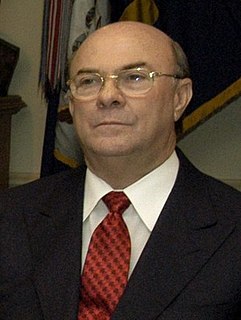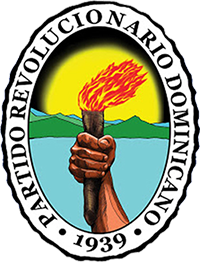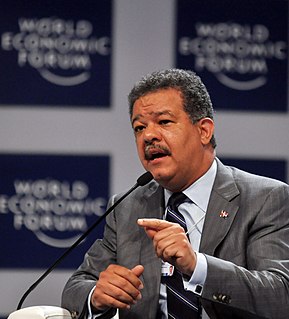
Joaquín Antonio Balaguer Ricardo was the President of the Dominican Republic who served three non-consecutive terms for that office from 1960 to 1962, 1966 to 1978, and 1986 to 1996.

The Dominican Republic is a representative democracy, where the President of the Dominican Republic functions as both the head of the government and head of the multi-party system. Executive power is exercised by the government. Legislative power is vested in the bicameral National Congress. The Judiciary is independent of the executive and the legislature.

Danilo Medina Sánchez is a Dominican politician and the current President of the Dominican Republic, since 2012.

Presidential elections were held in the Dominican Republic on 16 May 2004. The result was a victory for former president Leonel Fernández, who defeated incumbent Hipólito Mejía. Voter turnout was 72.8%.

The Social Christian Reformist Party is a Christian democratic right-wing political party in the Dominican Republic formed by the union of the Partido Reformista and the Partido Revolucionario Social Cristiano. Some of the PRSC's founders and leaders were originally business leaders and Roman Catholics who opposed the communist, socialist, democratic socialist and social democratic tendencies of Juan Bosch, of the PRD and PLD, respectively.
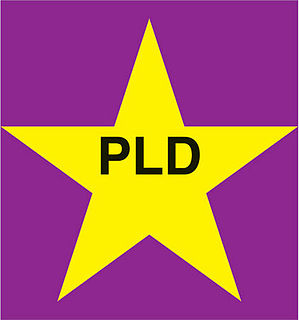
The Dominican Liberation Party is the current governing political party in the Dominican Republic. Founded in 1973 by former president Juan Bosch, the party, along with the Dominican Revolutionary Party, have dominated politics in the country since the establishment of democracy.

Silvestre Antonio Guzmán Fernández, best known as Antonio Guzmán, was a Dominican businessman and a politician. He was the 46th President of the Dominican Republic, from 1978 to 1982.
The National Progressive Force, is a political party in the Dominican Republic, with a centre-right position, Although the policies he defends place him on the spectrum as a party of far-right. Currently the party is in sixth place of preference of the electorate.
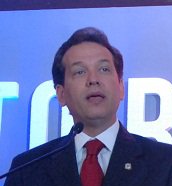
Víctor Orlando Bisonó Haza nicknamed Ito Bisonó, is a Dominican politician, business administration and current member of the Chamber of Deputies of the Dominican Republic representing the 2nd circunscription of the National District since the year 2002. Bisonó is a member of the Social Christian Reformist Party, and he has been Second Vice President of the Dominican-Haitian Chamber of Commerce.

A parliamentary election was held in the Dominican Republic on 16 May 2010 to elect members to the 32 seats in the Senate and 183 seats in the Chamber of Deputies. Polls forecasted a victory for the Dominican Liberation Party (PLD) of President Leonel Fernández. Before the election, 96 of the 178 Chamber of Deputies seats and 22 of the 32 Senate seats were controlled by the PLD.
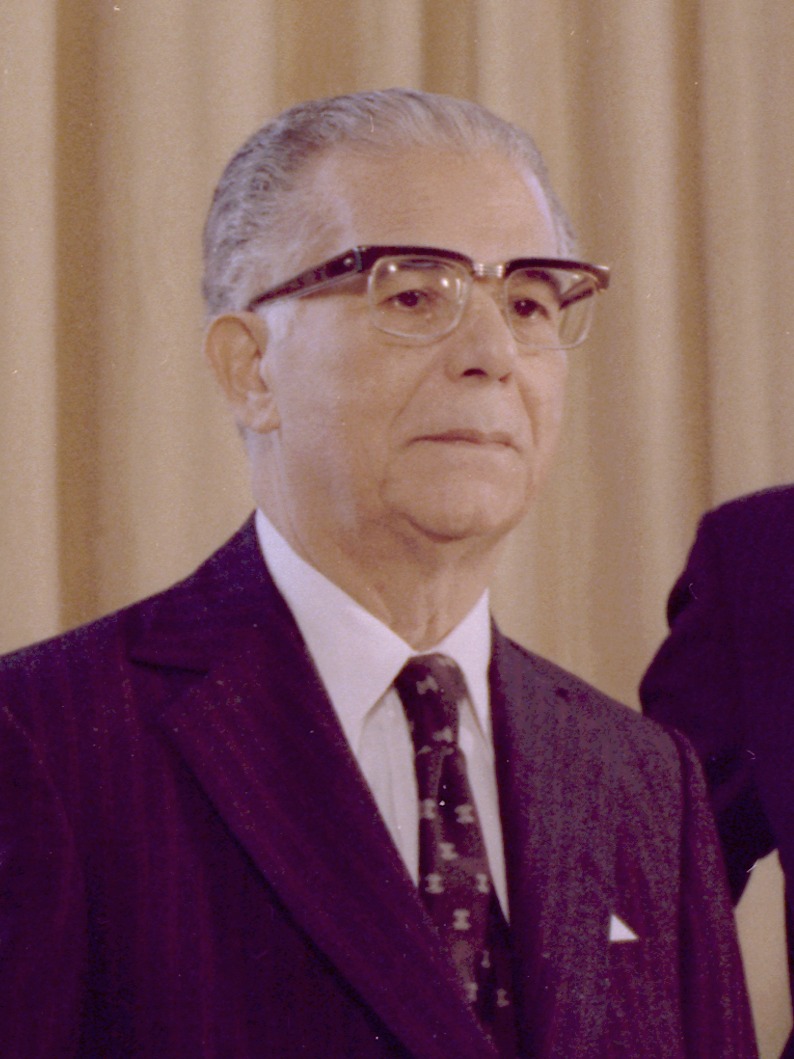
General elections were held in the Dominican Republic on 16 May 1986. Joaquín Balaguer of the Social Christian Reformist Party won the presidential election, whilst the PRSC-led alliance won the Congressional elections. Voter turnout was 72.2%.

Presidential elections were held in the Dominican Republic on 20 May 2012. They were the fifth quadrennial elections for the presidency and vice-presidency since 1998, when a change in the electoral law separated the presidential from the congressional and municipal elections.
General elections were held in Dominican Republic on 15 May 2016 to elect a president, vice-president and the Congress, as well as 20 deputies to the Central American Parliament, municipal councils, mayors and vice mayors. On 15 May 2015 Roberto Rosario, president of the Central Electoral Board, said that there would be about 4,300 seats up for election in the "most complex elections in history".

Miguel Octavio Vargas Maldonado is a civil engineer, businessman, and politician from the Dominican Republic. He is the chairman of the Dominican Revolutionary Party, a minority party allied with the PLD government and current Minister of Foreign Affairs.

Hatuey de Camps Jiménez was a politician from the Dominican Republic. He served as speaker of the Lower House of the Congress of the Dominican Republic from 1979 to 1982 and Secretary of State of the Dominican Republic from 1982 to 1986.
The Pact for Democracy is known by Dominicans as the agreement, act and / or agreement reached by José Francisco Peña Gómez and Joaquín Balaguer after the change in the electoral results of the 1994 elections in which Peña Gómez was the winner and Joaquín Balaguer He altered the results declaring himself winner of the elections.

